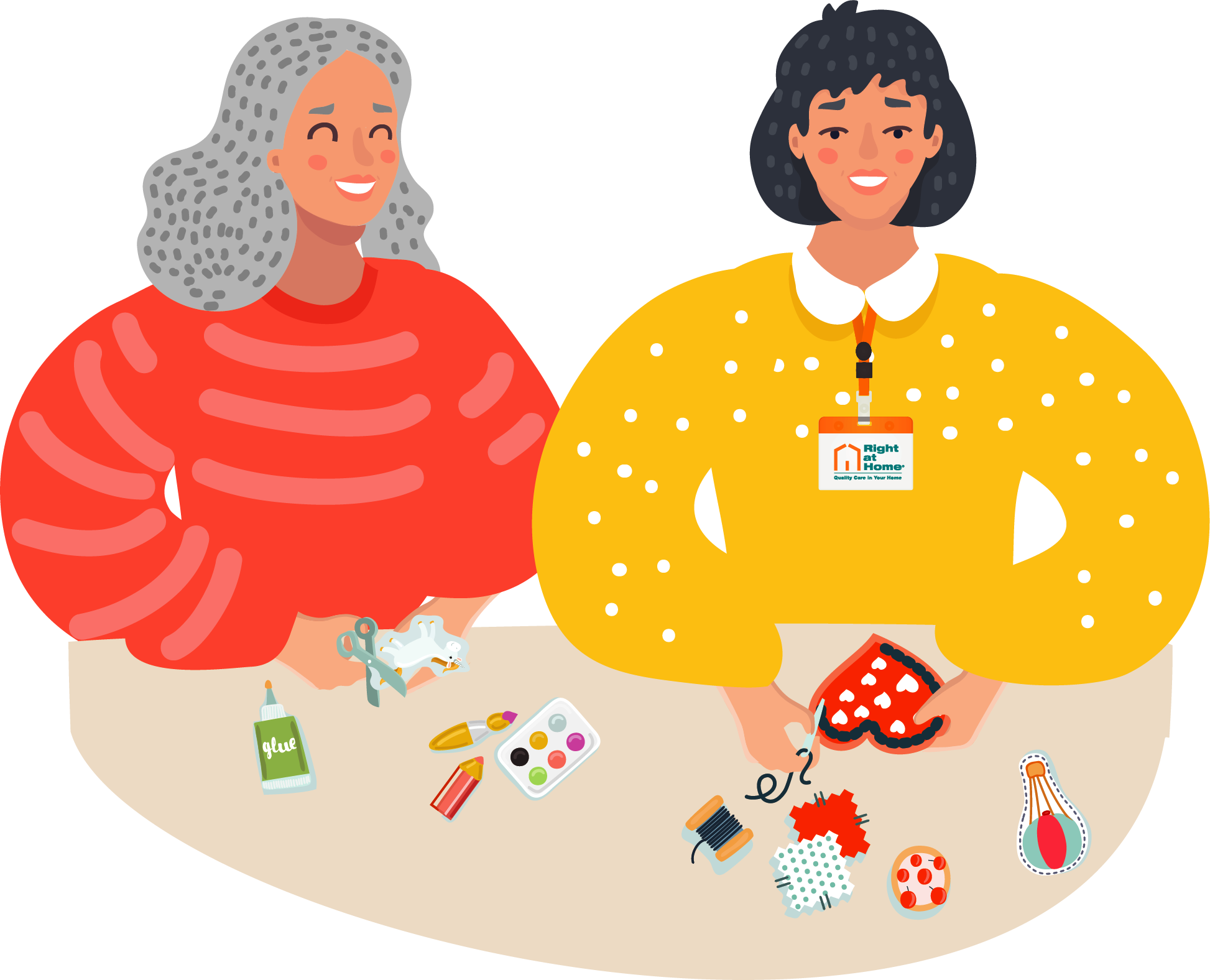Signs your loved one may need care

Published: 14/01/2023
Signs your loved one may need care
For most of us, there will come a time when our loved one or family member requires care. It is often a difficult and daunting time, however, when the warning signs are spotted earlier, early prevention measures can be put in place to support your loved one to remain living in the comfort of their own home for as long as possible. In our latest blog, we talk about the common signs that it may be time to consider care or moreover, signs that somebody may need care today:
- They are struggling to maintain their personal hygiene
A change in appearance or body odour may be a sign that your loved one needs support with their personal care. There are different reasons why someone may be struggling to maintain their usual personal hygiene standards; they no longer have the physical capabilities; their mental health issues are impacting their personal care routine or they have simply forgotten to wash and clean themselves daily.
- Changes in their weight
If there is a 10% difference or more in body weight, this can be a sign that there is a problem. They may not be eating enough and losing weight as a result. This could be caused by difficulty preparing meals, feelings of loneliness or isolation impacting their appetite or forgetting to eat at mealtimes. Visiting them during meal times will give you a good indication of their eating habits.
- Physical and mental changes
Physical changes can include bruises or bumps from falls, weight changes, changes in personal hygiene or all of the above. Whilst mental changes can include mood swings, withdrawal from social situations, or displaying new behaviours that seem out of character. Mental health problems can be experienced by people of all ages, so it is important to check in with your loved ones regularly to understand how they are feeling.
They are no longer able to perform daily tasks
Another key sign that your loved one may need care is that they are unable to carry out daily tasks. You might notice that their house is becoming very untidy. If they struggle with things such as making a cup of tea, showering, getting dressed or preparing meals, they could benefit from the support of a homecare plan.
- Memory loss
Memory loss is typically associated with dementia. Although it can be a symptom of dementia, that is not always the case. If you are worried your loved one has dementia, it is best to seek advice from your GP.
When treated early, people that are living with dementia can be supported to maintain their independence for longer. For more information on the early signs of dementia, you can view our dementia care services or give us a call on 01704 443344.
Who is most likely to need care?
As adults age, it is more likely that they may need some additional support. Older adults may require help with day-to-day tasks, or they may need some companionship and a friendly face to share a cup of tea.
Likewise, we do specialise across a number of areas and our team deal with what are commonly recognised as complex care packages on a daily basis. This can include ABI (acquired brain injury), Spinal Injury, MND (Motor Neurone Disease), to name but a few.
Having the care conversation
Having a conversation with your loved one about care can be daunting, but it is important that you speak openly so you can discuss the options available together. A welcome chat is usually just that, people don’t always initially want to openly admit where or when help is most needed, but always appreciate that you care enough to discuss it. You may face resistance at first, your loved one may be reluctant to open up but please be brave and broach the subject.
How can I check the quality of care services?
There are several trusted sources of impartial reviews within the Home Care sector, we are proud of all of ours, but particularly when it comes to the Care Sector governing body, the Care Quality Commission (CQC) and the single biggest platform for independent client reviews, Homecare.co.uk. Links to both are below:
- https://www.cqc.org.uk/location/1-4021028890
- https://www.homecare.co.uk/homecare/agency.cfm/id/65432224483
What type of care services are there?
There are lots of different types of care services. The level of care that is required will depend on the individual needs of your loved one. Typically, when the signs that someone needs care are identified early on, people can be supported to remain in their own homes with the help of quality homecare services. At Right at Home Sefton our services cover but are not limited to:
- Personal Care
- Companionship & Support
- Dementia Care
- Elderly Care
- Live-In Care
- Respite Care
- Hospital to Home Care
- Motor Neurone Disease (MND)
- Spinal Injury
How can we help?
At Right at Home Sefton we can support you and your loved one to develop a unique and personalised care plan that meets their needs and supports them to live a fulfilled life from the comfort of their own home. Whether they love spending time with their grandchildren or completing their favourite crossword puzzle, our team will ensure they are supported to keep doing the things they love.
What happens next?
If you would like to hear more or indeed are confident we are the company of choice for you or your loved ones, then the next step would for you to call or email us to arrange a no obligation chat to establish whether we believe we can deliver the standards of care you deserve and have the capacity to facilitate.
So if you think your loved one may need support or for more information on our homecare services, please contact a member of our friendly office team on 01704 443344 and email address is [email protected].
